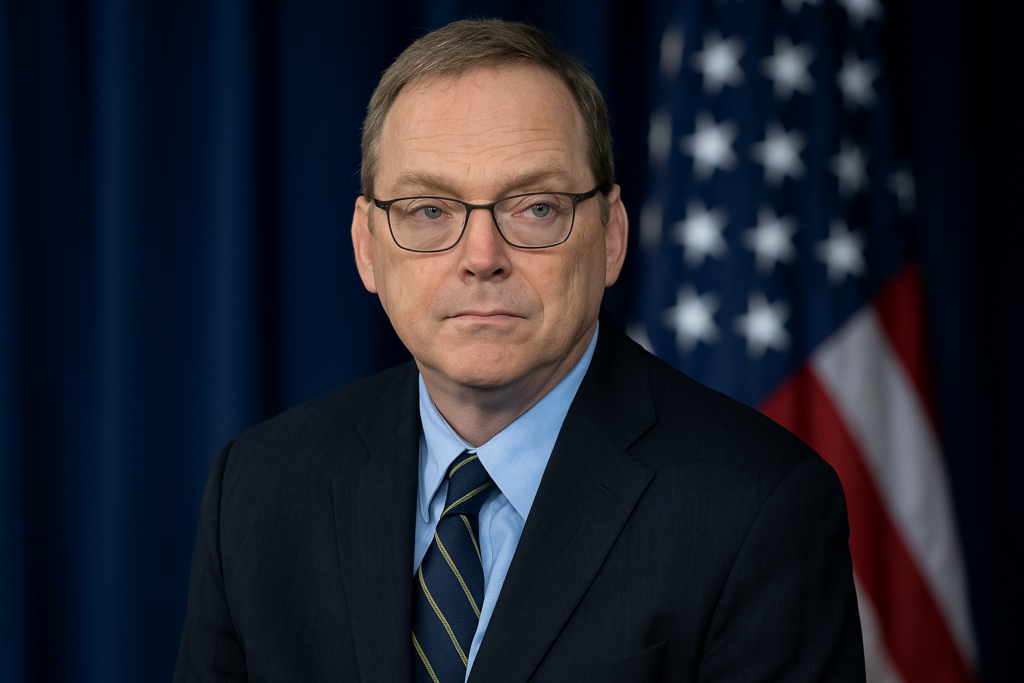Kevin Hassett, one of the most recognizable economic voices from the Trump administration, is suddenly back in public conversation. Search interest in his name has surged sharply, driven by renewed attention on interest rates, inflation forecasts, and policy debates that are shaping the U.S. economy heading into 2025.
Here’s why the former White House economist is back in the spotlight — and what his re-emergence means for markets, investors, and policy watchers.
Who Is Kevin Hassett?
Kevin Hassett is an American economist best known for serving as:
- Chairman of the Council of Economic Advisers (CEA) under President Donald Trump
- A senior economic adviser during the COVID-19 economic response
- A long-time scholar at the American Enterprise Institute (AEI)
He has spent decades shaping policy debates around taxation, economic growth, and labor markets, making him a highly influential figure during major economic turning points.
Why His Name Is Suddenly Trending Again
Search momentum around Kevin Hassett has spiked due to several overlapping factors:
• Rising uncertainty about U.S. economic direction
Hassett often comments on inflation risks, interest rates, and recession probability — topics dominating public discussion.
• Increased media appearances
He has recently appeared in multiple interviews discussing Federal Reserve decisions and future rate cuts.
• Renewed political relevance
As the U.S. approaches a presidential election cycle, former high-profile advisors are returning to policy conversations.
• Market volatility
Investors are once again paying attention to economists who predicted past downturns or policy shifts.
His Current Views on Inflation and the Federal Reserve
Hassett has recently emphasized several points regarding U.S. monetary policy:
• Inflation may remain stickier than the Federal Reserve expects
• Rate cuts could be slower and smaller than markets are pricing in
• Productivity and AI-driven growth are long-term positives
• Fiscal deficits pose rising risks to the economy
These views are gaining traction among investors due to continued uncertainty in CPI data and Fed guidance.
Why Investors Are Paying Attention
Kevin Hassett’s analysis matters to the financial community because:
• He focuses heavily on data-driven forecasting
His economic models were historically used inside the White House and by think tanks.
• He comments on corporate earnings trends
His insights on productivity and labor markets often correlate with equity market performance.
• He is outspoken on recession probabilities
As recession fears cycle up again, his forecasts attract attention.
• He has strong visibility in policy circles
His commentary can indirectly influence investor expectations about taxes, spending, and regulation.
Political Timing Makes His Commentary More Relevant
As the United States enters a tense political cycle, former economic advisors become more visible:
• They appear more often on news networks
• Their policy viewpoints shape party narratives
• They help craft economic talking points for campaigns
Hassett is a familiar face for voters and a trusted voice for conservative economic messaging, making his return timely.
What His Re-Emergence Could Mean for the Market
Traders and analysts are watching several areas connected to Hassett’s recent commentary:
• Interest rate expectations
His warnings about inflation persistence may influence how investors interpret FOMC signals.
• Economic growth forecasts
He argues that productivity gains could surprise to the upside — important for long-term equities.
• Fiscal policy discussions
Concerns about rising U.S. debt could impact bond markets and Treasury yields.
• Corporate investment trends
His comments on AI-driven growth have implications for tech and semiconductor sectors.
Final Thoughts: Why Kevin Hassett Matters Again
Kevin Hassett’s renewed visibility reflects a larger trend:
Americans are increasingly focused on inflation, policy decisions, and economic stability.
As markets prepare for potential interest rate changes, an uncertain fiscal outlook, and an election year, economists like Hassett regain public relevance.
Whether investors agree with his conclusions or not, his influence on economic debate ensures that Kevin Hassett will remain a key voice shaping discussions throughout 2025.







